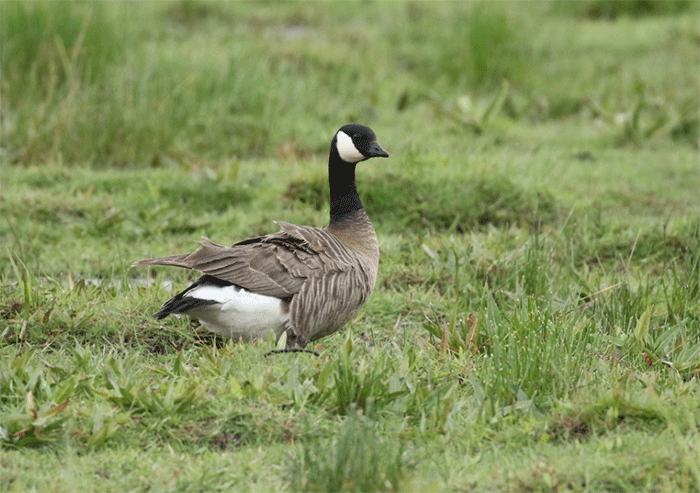Lingering at the Bay: Stopover Timing Shapes Goose Breeding Success
New study shows that longer rest at Hudson Bay helps Arctic-bound geese reproduce, but delays their arrival north

Extended pauses, lasting consequences
Spring migration for Arctic-breeding birds is a race against time, but new research suggests that slowing down can pay off. A study tracking Cackling Geese (Branta hutchinsii) with light-level geolocators has revealed that longer stopovers at the Hudson Bay Lowlands increase the likelihood of successful breeding once the birds reach their nesting grounds on Baffin Island.
While extended stopovers delayed arrival at the Arctic, the geese that rested longer were better prepared to incubate eggs successfully. These results highlight the crucial role that migratory staging areas - located over 1,700 km from the breeding grounds - play in reproductive outcomes.
Temperature’s subtle signals
Weather conditions at these last stopovers were found to influence timing. Higher temperatures at the Hudson Bay sites triggered earlier departures and earlier arrivals in the Arctic. Conversely, birds arriving at cold stopovers stayed longer, building up fat reserves for reproduction - a hallmark of so-called capital breeders like Cackling Geese.
The study revealed that a 1°C rise in temperature at the final stopover led to geese reaching the breeding site up to 0.28 days earlier. But this earlier arrival did not always translate into higher breeding success unless the birds had spent long enough refuelling.
More stops, less success
Birds that made more stopovers during spring migration tended to arrive later and had less success. This suggests a delicate trade-off: while additional stops can help weak or underfed birds, they may also reduce competitiveness at the breeding grounds. Birds that could skip stops or travel faster - often those already in better condition - gained a reproductive edge.
Interestingly, geese that departed late from their final stopover often compensated by flying faster during the final leg across Hudson Bay. However, deep snow or cold temperatures at the breeding grounds could still slow them down, reducing their migration rate by as much as 6.4 km per day for every 2.5 cm increase in snow depth.
Rethinking early arrival
Contrary to established thinking, the study found that late-arriving geese with longer stopovers often had better breeding outcomes than early arrivals. While early nesting typically offers advantages - such as better territory and food - it can also come with costs: poor weather, scarce food, and higher predation risk before vegetation grows in.
The study’s authors note that for capital breeders like Cackling Geese, quality trumps speed. Building energy reserves through long, resource-rich stopovers may be more important than simply arriving early.
Climate change and conservation concerns
These findings come amid growing concerns about the effects of climate change on Arctic migratory birds. The Hudson Bay Lowlands, now shown to be essential for reproductive success, may face habitat changes due to warming temperatures, industrial development, and increased competition with other goose species.
As migration patterns shift and stopover habitats change, the authors urge greater attention to these mid-journey sites. Protecting critical staging areas may be just as important as conserving breeding or wintering grounds.
This study, conducted by researchers from the University of Manitoba and the Canadian Wildlife Service, adds vital knowledge to the ecology of an understudied Arctic breeder. It also underscores the complexity of migration - where decisions made thousands of kilometres away can make or break a breeding season.
June 2025
Share this story







